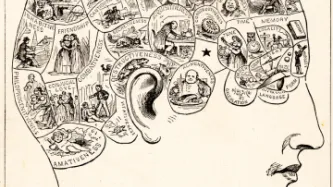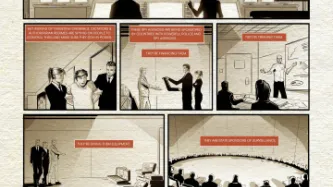Search
Content type: News & Analysis
This piece originally appeared here.
Creative Commons Photo Credit: Source
Tech competition is being used to push a dangerous corporate agenda.
High-tech industries have become the new battlefield as the United States and China clash over tariffs and trade deficits. It’s a new truism that the two countries are locked in a race for dominance in artificial intelligence and that data could drive the outcome.
In this purported race for technological high ground, the argument often goes, China…
Content type: Report
Countries with powerful security agencies are spending literally billions to equip, finance and train security and surveillance agencies around the world — including authoritarian regimes. This is resulting in entrenched authoritarianism, further facilitation of abuse against people, and diversion of resources from long-term development programmes.
Privacy International's report 'Teach 'em to Phish: State Sponsors of Surveillance' examines this problem closely, providng examples from US, China…
Content type: Long Read
Privacy International (PI) has today released a new report, 'Teach 'em to Phish: State Sponsors of Surveillance', showing how countries with powerful security agencies are training, equipping, and directly financing foreign surveillance agencies.
Spurred by advances in technology, increased surveillance is both powered by and empowering rising authoritarianism globally, as well as attacks on democracy, rights, and the rule of law.
As well as providing a background to the issue, the report…
Content type: Press release
Privacy International has today released a report that looks at how powerful governments are financing, training and equipping countries — including authoritarian regimes — with surveillance capabilities. The report warns that rather than increasing security, this is entrenching authoritarianism.Countries with powerful security agencies are spending literally billions to equip, finance, and train security and surveillance agencies around the world — including authoritarian regimes. This is…
Content type: Examples
In the remote western city Xinjiang, the Chinese government is using new technology and humans to monitor every aspect of citizens' lives. China, which has gradually increased restrictions in the region over the last ten years in response to unrest and violent attacks, blames the need for these measures on the region's 9 million Uighurs. This Muslim ethnic minority make up nearly half of the region's population, and the government accuses them of forming separatist groups and fuelling…
Content type: Examples
In a 2017 study of patterns of postings on Chinese social media, three Harvard researchers disagreed with the widespread claim that the government's strategy is to post "50c party" posts that argue for the government's side in policy and political debates. Instead, the researchers estimated that the Chinese government fabricates as many as 448 million social media comments a year but found that these avoid controversial issues and arguments with government skeptics. Instead, the researchers…
Content type: Examples
According to the US security firm Statfor the Chinese government has been builsing a system to analyse the massive amounts of data it has been collecting over the past years. The company claims: "The new grid management system aims to help the Chinese government act early to contain social unrest. Under the new program, grid administrators each monitor a number of households (sometimes as many as 200). They then aggregate their reports into one enormous surveillance database, where it is…
Content type: Press release
Below is a joint statement from Privacy International and Bytes for All.
This Friday, 27 September, marks the conclusion of the 24th session of the UN Human Rights Council, a session which has, for the first time, seen issues of internet surveillance in the spotlight. Privacy International and Bytes for All welcome the attention given at the Human Rights Council to this issue. However, we are concerned about developments which took place that threaten privacy rights and freedom of…





